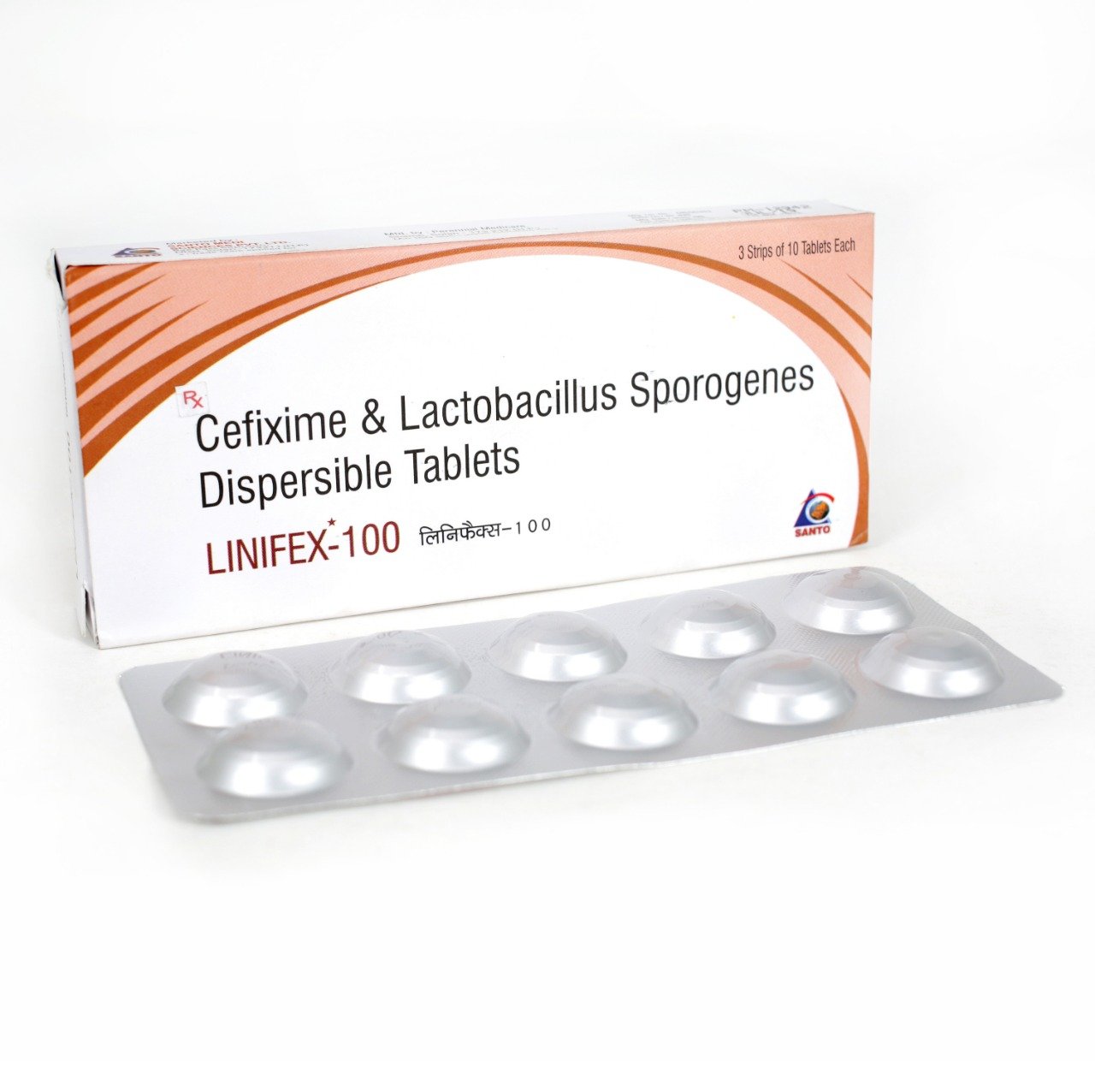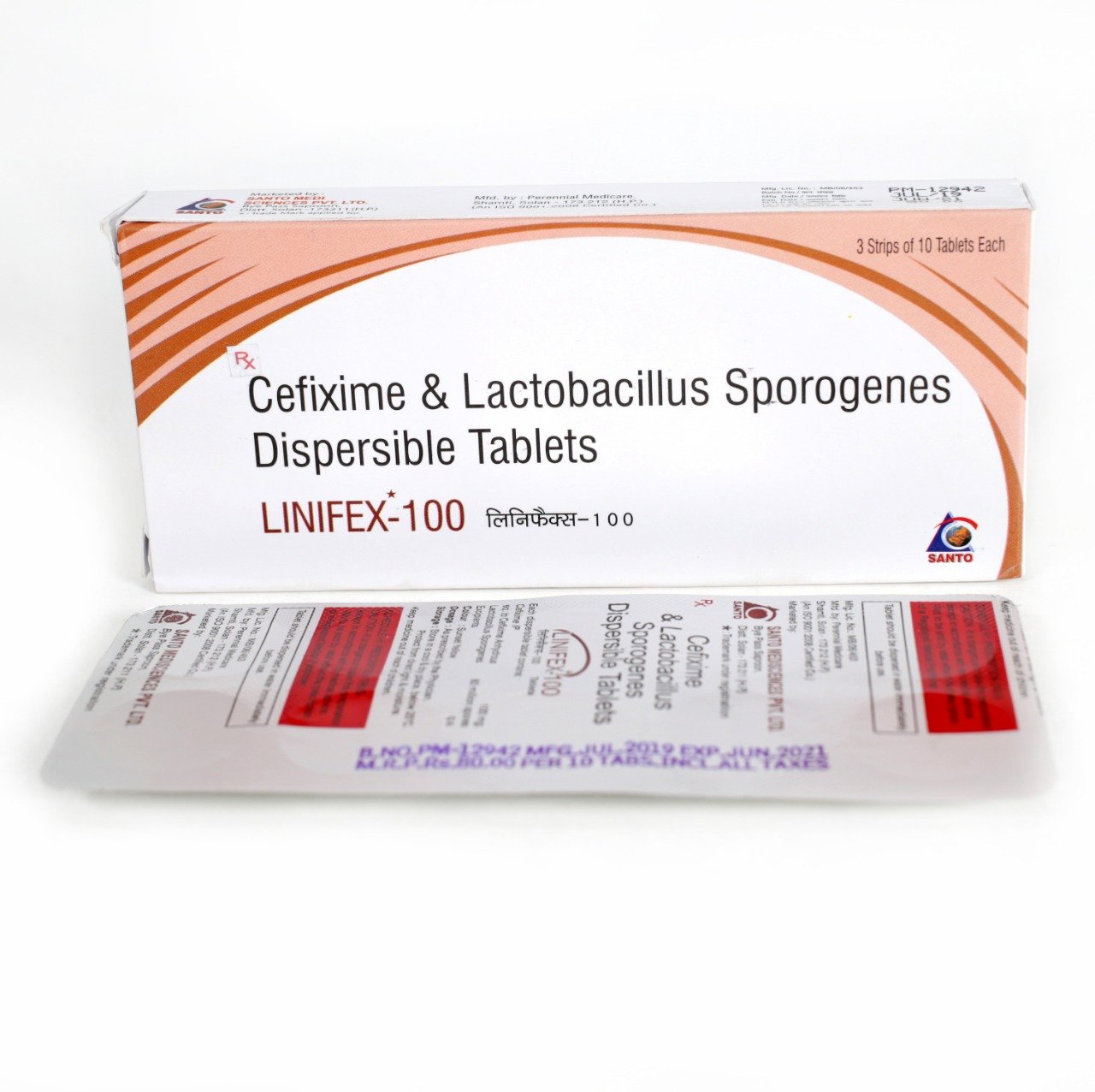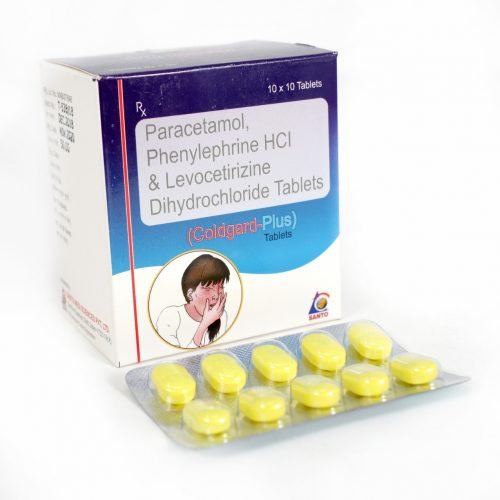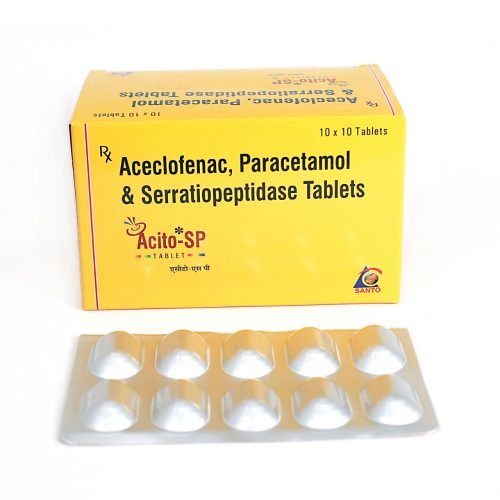- 01792-220191, 09839141955, 06390845955
- SCO No. 2 & 3, Block-B;Office No.-249A; 2nd Floor, Motia Plaza Baddi-173205; Distt. Solan (H.P.)

GRAVICARE-PLUS
September 19, 2019
LINIFEX-200
September 19, 2019LINIFEX-100
| Brad Name | Linifex-100 |
| Composition | Cefixime 100 mg + Lactobacilius sporogenes 60 million spores Tablets |
Cefixime 100 mg
Fexin (Cefixime) which is a semi-synthetic, third generation cephalosporin antibiotic, belonging to a sub group of the beta lactam group of antibiotics (which include penicillins). It inhibits the synthesis of the peptidoglycan layer of the bacterial cell wall, which is important for the structural integrity of the cell wall. It is effective against a wide range of common bacteria found in general practice and in hospitals including: Streptococci, Staphylococci (including penicillinase-producing strains and non-resistant strains); Haemophilus influenzae; Klebsiella pneumonia, Escherichia coli, among others.
Indications
- Tonsillitis
- Pharyngitis
- Pneumonia
- Bronchitis & other respiratory tract infections
- Skin & soft tissue infections
- Urinary tract infections
- Otitis media
Dosage
1 tablet to be taken 2 times daily usually for upto 7-14 days
Contraindications
- Contraindicated in patients with known hypersensitivity to cephalosporin antibiotics.
- Patients allergic to cephalosporins may also be allergic to penicillins.
Precautions
- Limited activity against anaerobes
- Dosage must be adjusted in severe renal insufficiency (high doses may cause CNS toxicity); superinfections and promotion of nonsusceptible organisms may occur with prolonged use or repeated therapy
- Use with caution in patients with history of penicillin allergy
- Bacterial or fungal overgrowth of nonsusceptible organisms may occur with prolonged or repeated therapy
Side effects
The most commonly reported side effects when taking Fexin 200mg include gastrointestinal upset, diarrhoea, nausea, vomiting, stomach pain, headache, dizziness, skin rash, urticaria (hives), genital and anal pruritis (itching), blotchy red patches, dermatitis, swelling of the face, lips, tongue or other parts of the body, shortness of breath, wheezing or trouble breathing.
Drug interaction
- Anticoagulants (such as warfarin or heparins).
- Oral contraceptives (the Pill), as they may be less effective at preventing pregnancy and you may need to take extra precautions.
- Aminoglycoside antibiotics such as gentamicin or other antibiotics called polymyxin B, colistin or viomycin, or certain strong acting diuretics (water tablets) such as furosemide, as the doctor will want to check how your kidneys are working, especially if you already have kidney problems.
- Nifedipine (a drug used to treat heart problems such as arrhythmias and high blood pressure). If nifedipine is taken along with Cefixime, then levels of Cefixime in your blood may be increased






